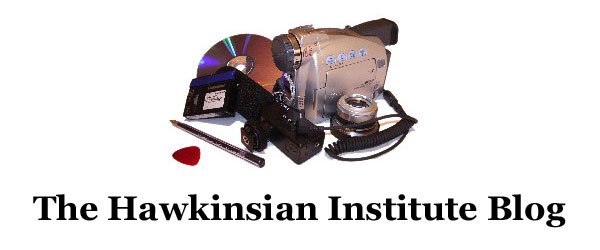The phrase pops up here and there as part of the debate about ‘work/life balance’ – another interesting phrase. It describes the apparently increasing condition that money is more abundant than time. In other words, lots of people have reached a point in their lives where they have enough money to pay for what they want, but not the time to enjoy it.
The fact that we even have phrases like this amazes me. What’s more, they are dropped into conversation and editorial like an accepted and understood status report – without any scrutiny of what the phrase is actually reporting about our status.
It seems fashionable to seek balance, or at least use the word, in contemporary life. After a 20th century of extremes, the early 21st century prefers to occupy the middle ground. For instance, mainstream British and European political parties compete for the middle ground; speaking generally, confrontational behaviour between unions and employers is not dead, but the flavour has changed.
Balance in itself is difficult to argue against:
“We need a balanced approach.”
“No we don’t. We need an imbalanced one.”
The problem with talking about balance is that it takes the focus away from sometimes unreasonable extremes on either side of the fulcrum. Seeking balance assumes that there is a solution between opposing forces. But what happens if these opposing forces are incompatible? What happens if one force is disproportionately dominant?
If a child plays on a see-saw with another child, the balance is easy. If a child plays on a see-saw with an elephant, balance could only be achieved by moving the fulcrum, the centre ground, closer to the elephant and further from the child. The centre ground isn’t so central anymore and balance isn’t always very well balanced.
We often use these balance metaphors but in doing so we distract ourselves from the issues involved. The term ‘work/life balance’ assumes that such a thing is possible – that work and life can be balanced in a satisfactory way. It also acknowledges that these two things are opposites. If we use the see-saw analogy, work and life for most will always be in competition with each other. Wouldn’t it be better to seek a solution to this rather than find the balance?
At this point, I’d like to acknowledge that binary opposites (left/right, good/bad) aren’t always helpful. The human condition isn’t always so black and white but it is significant that we’ve created a binary opposite with ‘work/life’.
The phrase I began with, “cash rich, time poor” is effectively a description of a work/life imbalance. It is used like a common complaint, like an occupational hazard. And if the work/life balance was so achievable, as that phrase suggests, if work and life weren’t such opposing forces, why do so many people feel cash rich, time poor?
What a comment this is about the system we live by. In the West, starvation isn’t the biggest threat, its obesity. For jobs, employment and destitution aren’t the concern, it’s having the time to spend your earnings. And, presumably, many of these cash rich, time poor people have followed the system’s rules to achieve this status. Generally, (and there will be all kinds of exceptions) they have worked at school, gone to university, applied for jobs and applied for promotions etc etc. They have essentially conformed, and how does our system reward them? With time poverty - and there is nothing, absolutely nothing, more valuable than our time.
Maybe the balancing act isn’t so easy. Maybe it isn’t within the power of any ordinary individual to make the necessary changes? If a child is trying to play on a see-saw and the elephant at the other end won’t budge, maybe we shouldn’t be talking about balance?
